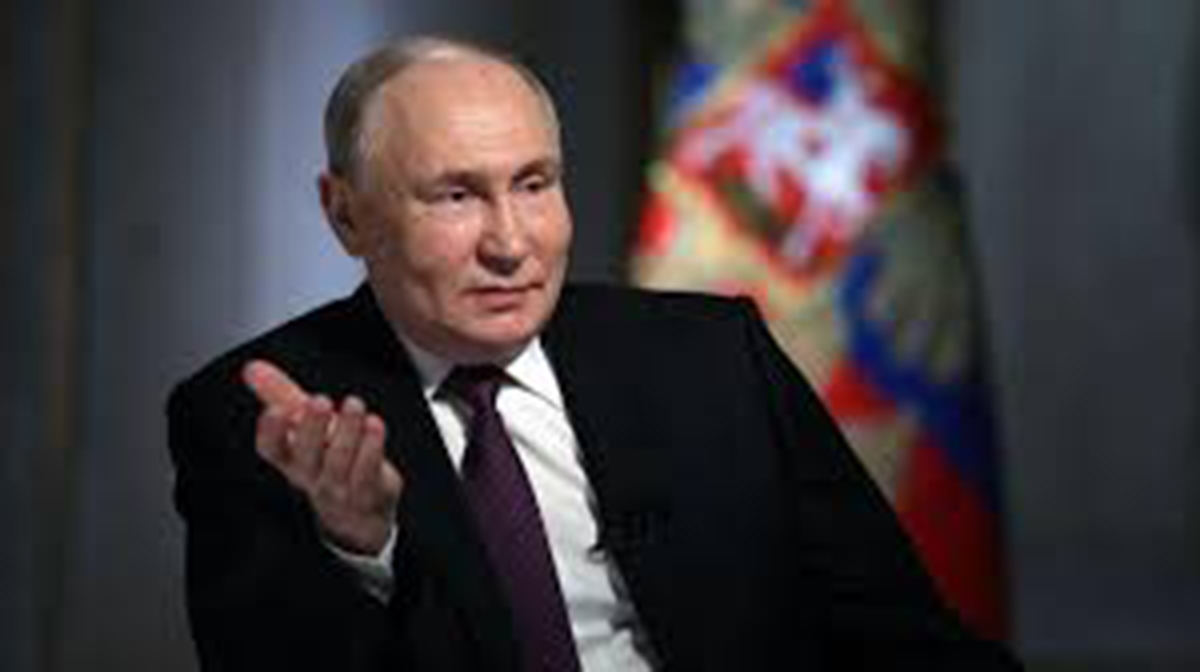
In the wake of the devastating U. S . military strikes on its nuclear facilities under “Operation Midnight Hammer,” Iran is turning to a long-time partner for support—Russia. The surprise attack, which targeted Fordow, Natanz, and Isfahan with 14,000-kg bunker-busting bombs, has plunged Tehran into a moment of strategic reckoning. Now, with diplomatic isolation growing and retaliation looming, Iranian Foreign Minister A b b a s A ragh c h i h a s arrived in Moscow, seeking assurances and coordination with President Vladimir Putin and other senior Russian officials.
Before departing for Russia, Araghchi underscored the importance of Iran’s relationship with Moscow at a conference in Istanbul.
“We always consult with each other and coordinate our positions,” he said. His visit, just hours after the U.S. airstrikes, signals Tehran’s urgent need for diplomatic backing—but also exposes the careful line Moscow continues to walk in West Asia. While Russia has sharply criticized the U.S. for its actions—calling the strikes a breach of the UN Charter and international norms— it has refrained from any overt escalation or security guarantees to Iran. Putin’s remarks during the St. Petersburg International Economic Forum made it clear: Russia’s calculus is shaped by complex regional dynamics, including its significant Russian-speaking population in Israel.
“Almost two million people from the former Soviet Union and the Russian Federation live in Israel. It is almost a Russian-speaking country today,” Putin said, highlighting how domestic considerations influence Kremlin foreign policy. This unusual demographic factor makes outright alignment with Tehran diplomatically risky. Russia’s approach in the region has long been defined by multi-directional engagement. It maintains ties with Israel, Islamic nations, and Arab states alike—positions that allow it to project influence while avoiding entanglement.
Moscow also holds observer status in the Organisation of Islamic Cooperation (OIC) and has a sizable Muslim population within its borders, which further shapes its cautious stance. Despite a shared interest in countering Western influence, especially after Western sanctions isolated both capitals, the Iran Russia partnership has remained pragmatic rather than ideologically driven. Their cooperation has included joint efforts in drone technology, nuclear energy, and satellite development. Iran notably supplied Shahed drones to Russia after its invasion of Ukraine, with reports indicating that Moscow paid for them, in part, with gold shipments worth over \$100 million. But this pragmatic alliance has clear boundaries.
Russian officials, including Putin himself, have stressed that their newly signed comprehensive cooperation agreement with Iran does not include provisions for military assistance. Russia has also made it known that Iran has not formally requested any military intervention amid the current crisis. That leaves Iran in a difficult position. Araghchi has said Tehran reserves all rights to retaliate in self-defence, accusing the United States of violating the Non-proliferation Treaty and committing “a grave breach of the UN Charter.” Iran’s message is clear: it expects strategic reassurance and diplomatic heft from Moscow, particularly at the UN Security Council. h i l e M o s c o w h a s c o n d e m n e d t h e U. S. action, it has offered little beyond strongly worded statements.
The Russian foreign ministry labelled the airstrikes on Iranian territory “an irresponsible decision,” emphasizing that such unilateral actions by a Security Council permanent member undermine global peace and security. Yet, Russia has carefully avoided statements that could be seen as a commitment to intervene directly or support Iranian retaliation. There are good reasons for that restraint. Russia’s recent setbacks in Syria, especially with the ousting of long-time ally Bashar al-Assad by rebel forces, have underlined the costs of overextension. Moscow’s appetite for another regional conflict—particularly one with potential nuclear dimensions—is limited. Additionally, the spiralling crisis in West Asia has distracted global focus from Ukraine. The G7 summit in Canada, for example, did not advance sanctions further, maintaining the price ceiling on Russian oil at \$60 per barrel. That’s a quiet economic win for Moscow, underscoring how chaos elsewhere can offer breathing room to a sanctioned economy. Inside Iran, the message from officials is growing sharper.
Foreign ministry spokesperson Esmaeil Baghaei has publicly stated that Iran expects Russia to assume a more active role in regional diplomacy and at the United Nations. The expectation is not just for words, but for visible diplomatic intervention to help shield Iran from international fallout and further U.S. aggression. However, as Putin has demonstrated time and again, his foreign policy is dictated by strategic interests rather than solidarity. His past offers to mediate between Iran and Israel were swiftly dismissed by then U.S. President Donald Trump.
“Do me a favour, mediate your own,” Trump quipped at the time, signalling little room for Moscow’s diplomatic overtures. T h a t e x c h a n g e encapsulates the dilemma for Iran: its reliance on Russia for support comes with no guarantees. Russia’s interests, while aligned in some areas, do not include unconditional backing in times of conflict escalation. The current crisis marks a turning point in Iran-Russia relations—a test of whether their partnership can move beyond convenience to strategic depth.
For now, Moscow’s response indicates otherwise. It sees value in the relationship but not enough to jeopardize its balancing act in West Asia or provoke further confrontation with the West. Araghchi’s visit, though framed as routine coordination, is in truth a diplomatic SOS. Tehran needs reassurance, but Putin is offering only carefully measured support. While the symbolism of unity remains, the limits of that unity are becoming ever more apparent. For Iran, navigating this crisis will require more than rhetorical backing—it needs allies willing to act. And in Russia’s case, action remains a step too far.
